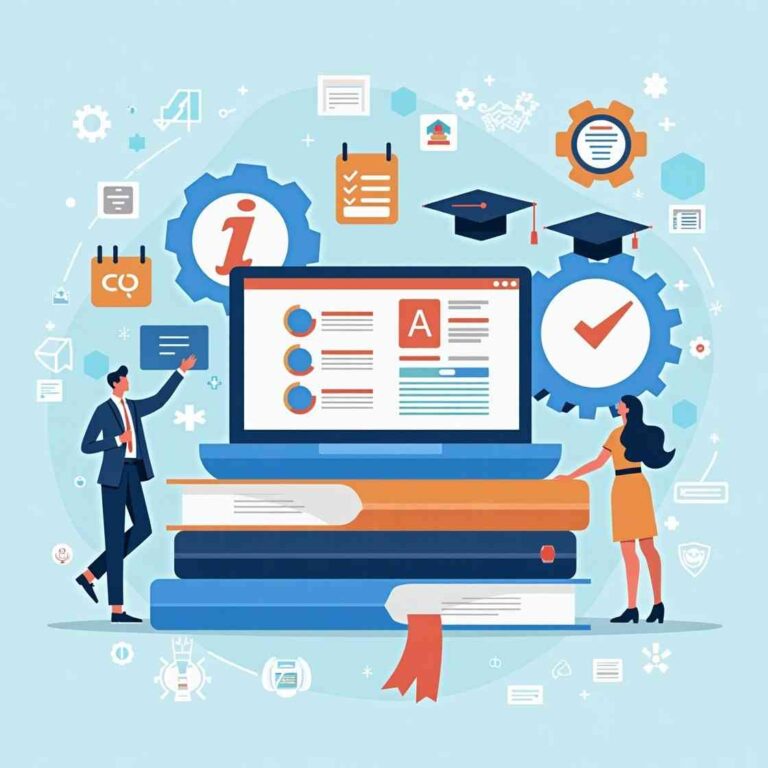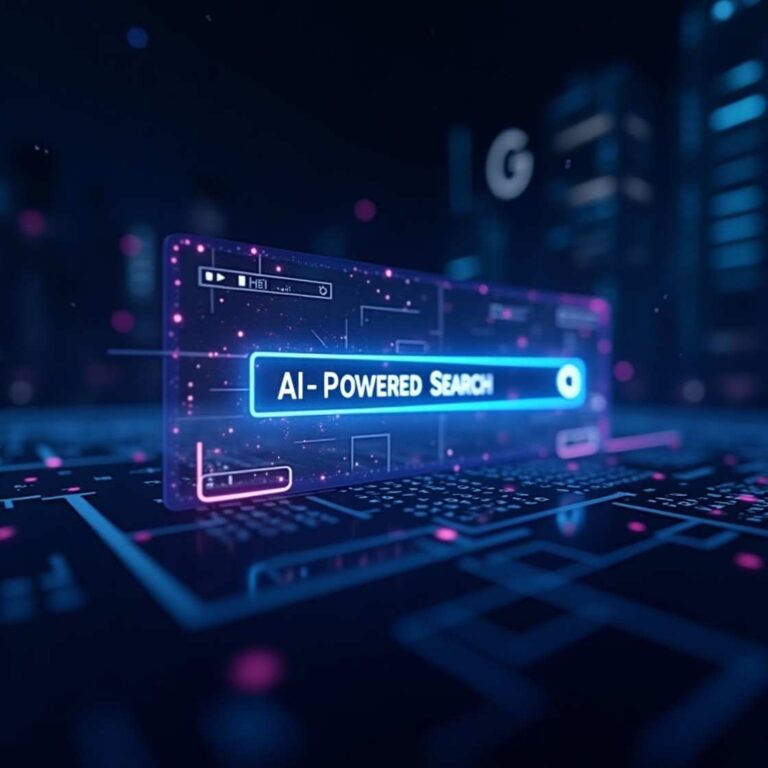Table of Contents
Introduction
AI-driven education is transforming the way we learn, making education more personalized, efficient, and accessible. From AI-powered tutoring to adaptive learning platforms, this technology is reshaping traditional education by catering to individual student needs. In this article, we explore 10 powerful ways AI-driven education is revolutionizing learning and its benefits for students and educators alike.
1. Personalized Learning with AI
AI-powered learning systems analyze students’ performance and adapt the curriculum to fit their needs. This ensures that each student progresses at their own pace, receiving customized lessons based on their strengths and weaknesses.
Key Benefits:
- Customized Learning Paths – AI identifies learning gaps and tailors content accordingly.
- Instant Feedback – Students get real-time assessments and corrections.
- Adaptive Assessments – AI modifies questions based on performance, ensuring a balanced challenge.
2. AI-Powered Tutoring Systems
AI-driven tutors like ChatGPT and IBM Watson are providing 24/7 assistance to students. These smart tutors can answer questions, explain concepts, and guide students through complex topics without the need for human intervention.
Key Benefits:
- Round-the-Clock Support – No more waiting for teachers.
- Cost-Effective – Reduces the need for expensive private tutors.
- Personalized Assistance – AI understands learning patterns and adjusts accordingly.
3. Smart Content Creation & Curation
AI is transforming content creation by developing interactive textbooks, auto-generating quizzes, and summarizing key concepts for students.
Key Benefits:
- Automated Summaries – AI condenses lengthy material into easy-to-digest summaries.
- AI-Generated Practice Tests – Instant quiz generation helps students test their knowledge.
- Enhanced Engagement – Interactive AI-powered materials keep students interested.
4. AI-Based Language Learning
Language learning apps like Duolingo and Rosetta Stone use AI to create personalized learning experiences. Speech recognition and NLP (Natural Language Processing) help learners improve pronunciation and grammar.
Key Benefits:
- Speech Recognition – AI corrects pronunciation in real-time.
- Personalized Lessons – Adjusts content based on performance.
- Gamified Learning – Keeps students motivated through AI-driven challenges.
5. AI-Enabled Automated Grading
AI is reducing the burden on teachers by automating grading for multiple-choice, short-answer, and even essay-based questions.
Key Benefits:
- Faster Feedback – Students receive instant scores.
- Eliminates Bias – AI grades objectively, reducing human error.
- Saves Time – Teachers can focus on interactive teaching instead of grading.
6. AI-Driven Virtual Classrooms
AI-powered virtual learning platforms provide real-time analytics, engagement tracking, and smart recommendations to improve the online education experience.
Key Benefits:
- Improved Engagement – AI suggests interactive activities to keep students involved.
- Real-Time Performance Analysis – Tracks progress and identifies areas for improvement.
- AI-Powered Study Plans – Recommends study schedules based on student progress.
7. AI in Career Guidance & Skill Development
AI is helping students choose career paths based on their skills, interests, and market trends. Career guidance chatbots analyze strengths and suggest suitable career options.
Key Benefits:
- Data-Driven Career Suggestions – AI recommends jobs based on skills and demand.
- Skill-Based Learning Paths – Personalized recommendations for skill development.
- Job Market Insights – AI keeps students updated on trending careers.
8. AI-Powered Special Education Tools
AI is making education more inclusive by offering tools that assist students with disabilities. Speech-to-text applications, AI-powered sign language interpreters, and personalized learning tools help students with special needs.
Key Benefits:
- Improved Accessibility – AI tools help students with visual, hearing, or learning disabilities.
- Personalized Learning Support – AI adjusts to different learning abilities.
- Enhanced Communication – AI-powered speech recognition assists students with speech impairments.
9. AI in Student Engagement & Gamification
AI-driven gamification techniques make learning more engaging and fun. AI adapts game-based learning strategies to different student preferences, boosting motivation and retention.
Key Benefits:
- Interactive Learning – AI-powered quizzes and challenges enhance engagement.
- Boosts Motivation – Game elements encourage continuous learning.
- Adaptive Learning Paths – AI personalizes content based on student responses.
10. AI-Powered Research Assistance
AI tools like Google Scholar, Semantic Scholar, and AI-powered summarization tools help students and researchers find relevant academic papers, generate insights, and summarize complex topics efficiently.
Key Benefits:
- Faster Research – AI streamlines literature review by summarizing key papers.
- Smart Recommendations – AI suggests relevant sources based on research topics.
- Efficient Data Processing – AI tools analyze vast amounts of data quickly.
Pros and Cons of AI in Education
Pros:
✔ Personalized Learning – AI adapts lessons to individual needs.
✔ 24/7 Availability – AI tutors and chatbots provide instant help.
✔ Automated Grading – Saves time for educators.
✔ Enhanced Accessibility – Supports students with disabilities.
✔ Efficient Research – AI-powered tools speed up academic work.
Cons:
✖ Lack of Human Interaction – AI cannot replace human teachers completely.
✖ Dependence on Technology – Over-reliance on AI may reduce critical thinking skills.
✖ High Implementation Costs – Advanced AI systems require investment.
✖ Privacy Concerns – AI collects student data, raising security issues.
✖ Potential Bias in AI – AI algorithms may reflect biases in training data.
Conclusion
AI is not just changing how we learn—it’s revolutionizing education. From personalized learning to AI tutors, smart grading, and virtual classrooms, the impact of AI is profound. As technology advances, AI will continue to shape the future of education, making learning more efficient, engaging, and accessible to all.
Disclaimer
This article is for informational purposes only. AI tools and their impact on education may vary based on different factors. Always consult educational experts before making decisions related to AI-based learning.









I love how AI can tailor learning experiences to individual students. It’s exciting to think about how personalized paths and instant feedback can help bridge learning gaps and make education more accessible to everyone.